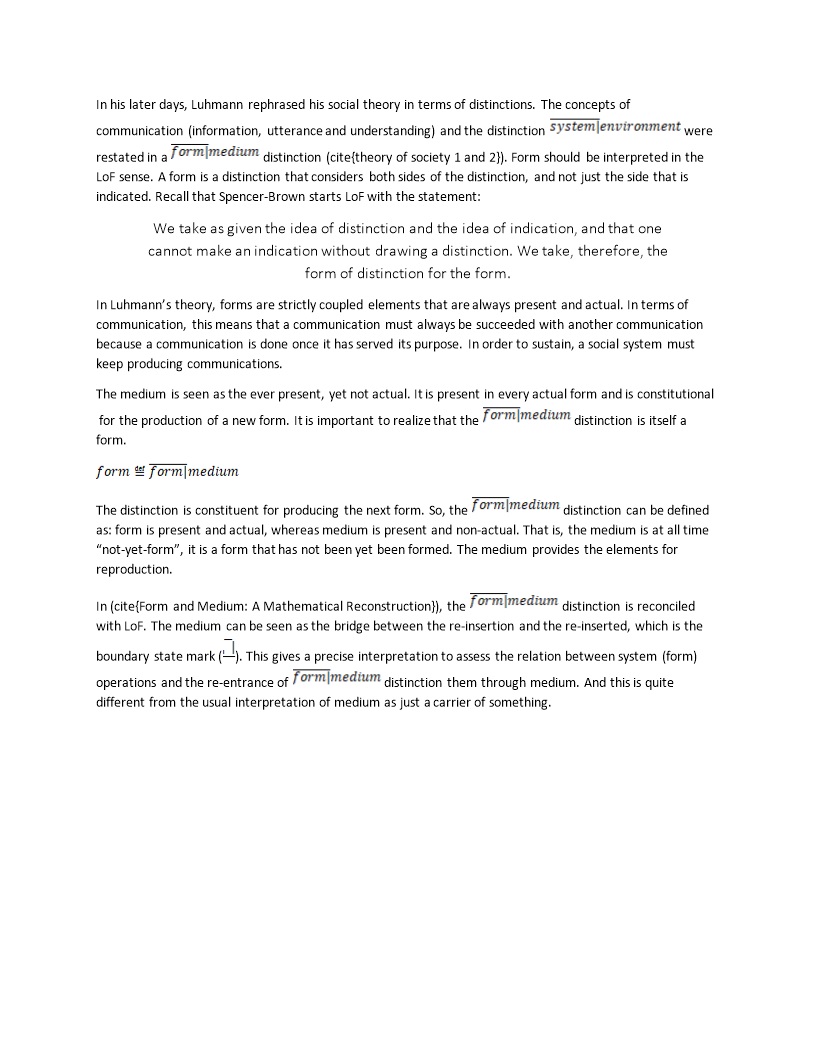Later Developments
In his later days, Luhmann rephrased his social theory in terms of distinctions. The concepts of communication (information, utterance and understanding) and the distinction [math]\displaystyle{ \overline{system|}environment }[/math] were restated in a [math]\displaystyle{ \overline{form|}medium }[/math] distinction (see: theory of society (Niklas Luhmann, 1 januari 2012)). Form should be interpreted in the Laws of Form (LoF) sense. A form is a distinction that considers both sides of the distinction, and not just the side that is indicated. Recall that Spencer-Brown starts LoF with the statement:
We take as given the idea of distinction and the idea of indication, and that one cannot make an indication without drawing a distinction. We take, therefore, the form of distinction for the form.
In Luhmann’s theory, forms are strictly coupled elements that are always present and actual. In terms of communication, this means that a communication must always be succeeded with another communication because a communication is done once it has served its purpose. In order to sustain, a social system must keep producing communications.
The medium is seen as the ever present, yet not actual. It is present in every actual form and is constitutional for the production of a new form. It is important to realize that the [math]\displaystyle{ \overline{form|}medium }[/math] distinction is itself a form.
- [math]\displaystyle{ form \;\; \stackrel{def}{=} \;\; \overline{form|}medium }[/math]
The distinction is constituent for producing the next form. So, the [math]\displaystyle{ \overline{form|}medium }[/math] distinction can be defined as: form is present and actual, whereas medium is present and non-actual. That is, the medium is at all time “not-yet-form”, it is a form that has not been yet been formed. The medium provides the elements for reproduction.
In Form and Medium: A Mathematical Reconstruction (Michael Schiltz, 1 augustus 2003), the [math]\displaystyle{ \overline{form|}medium }[/math] distinction is reconciled with LoF. The medium can be seen as the bridge between the re-insertion and the re-inserted, which is the boundary state mark ([math]\displaystyle{ \overline{\underline{_{\lfloor}\;\;}\bigg|} }[/math]). This gives a precise interpretation to assess the relation between system (form) operations and the re-entrance of [math]\displaystyle{ \overline{form|}medium }[/math] distinction them through medium. And this is quite different from the usual interpretation of medium as just a carrier of something.

